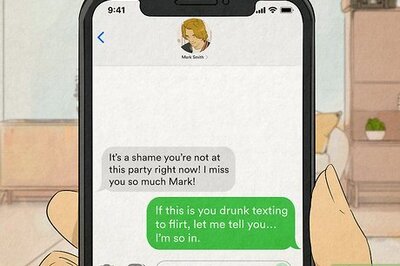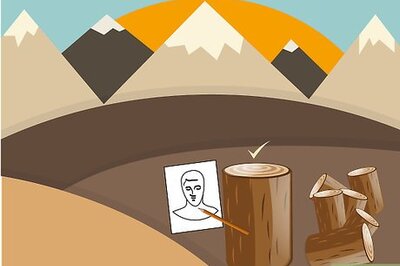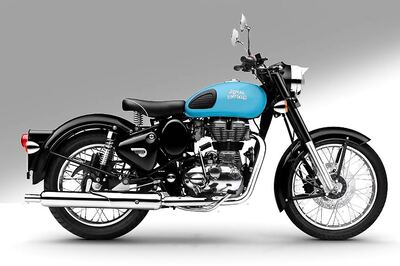
views
Du’a to Recite After Eating
الحمد لله حمداً كثيراً طَيِّباً مباركاً فيه، غير مكفى ولامودع، ولا مستغنى عنه ربنا(Al-hamdu lillahi hamdan) Abu Umamah reported that whenever the Prophet (ﷺ) finished a meal, he said, “Al-hamdu lillahi hamdan kathiran taiyyiban mubarakan fihi, ghaira makfiyyin wa la muwadda`in, wa la mustaghnan `anhu, Rabbuna” (Al-Bukhari, Book 2, Hadith 7). English translation: “All praise is due to Allah, praise which is abundant, pure, and full of blessings, which is indispensable and to which one cannot be indifferent.” Benefits: This du’a reminds you that your food and all other good things come from Allah, increasing your relationship with Him.
من أكل طعاماً فقال: الحمد الله الذي أطعمني هذا، ورزقنيه من غير حول منى ولا قوةٍ، غفر له ما تقدم من ذنبه (Al-hamdu lillahi-lladhi at'amani) Mu'adh bin Anas said that the Messenger of Allah (ﷺ) said, “He who has taken food and says at the end: ‘Al- hamdu lillahi-lladhi at'amani hadha, wa razaqanihi min ghairi haulin minni wa la quwwatin,’' all his past sins will be forgiven” (Abu Dawud and At- Tirmidhi, Book 2, Hadith 8). English translation: “All praise is due to Allah Who has given me food to eat and provided it without any endeavour on my part or any power.” Benefits: Reciting this du’a erases any and all sins committed that day and the days previous.
ٱلْحَمْدُ لِلّٰهِ (Alhamdulillah) The Prophet (ﷺ) taught Muslims to say “Alhamdulillah” after eating food. Anas bin Malik also said The Messenger of Allah (ﷺ) said, "Allah is pleased with His slave who says ‘Al-hamdu lillah’ when he takes a morsel of food and drinks a draught of water” (Muslim, Book 13, Hadith 4). English translation: “All praise is due to Allah.” Benefits: Reciting this du’a forgives all of your sins, improves your relationship with Allah, and gives thanks to Allah for blessing you with your food and the strength it provides.
Du’a to Recite Before Eating
بِسْمِ اللهِ (Bismillah) 'Aishah reported that the Prophet (ﷺ) said, “When any of you wants to eat, he should mention the Name of Allah (Bismillah) in the beginning” (At-Tirmidhi and Abu Dawud, Book 2, Hadith 2). English translation: “In the name of Allah.” Benefits: It is Sunnah to say “Bismillah” before eating or entering your home or any place you’re spending the night in. This du’a also gives Allah’s blessings and shows respect to Him. Jabir reported that the Prophet (ﷺ) said “If a person mentions the Name of Allah upon entering his house or eating, Satan says, addressing his followers: 'You will find nowhere to spend the night and no dinner’” (Muslim, Book 2, Hadith 3).
بِسمِ اللهِ أَوَّلَهُ وَآخِرَهُ (Bismillahi awwalahu wa akhirahu) If you forget to say “Bismillah” before you begin eating, say this du’a. This is because 'Aishah reported that the Prophet (ﷺ) said,If he forgets to [mention the name of Allah] in the beginning, he should say Bismillah awwalahu wa akhirahu” (At-Tirmidhi and Abu Dawud, Book 2, Hadith 2). English translation: “I begin with the name of Allah at the beginning and at the end.” Benefits: This du’a is a reminder to thank Allah for the food He provided for you and ask for His blessings. It also increases your relationship to Him.
اللَّهُمَّ بَارِكْ لَنَا فِيهِ وَأَطْعِمْنَا خَيْرًا مِنْهُ (Allahumma barik lana fihi wa) Ibn ‘Abbas said the Messenger of Allah (ﷺ) once said, “Whoever is given food by Allah, let him say: Allahumma barik lana fihi wa arzuqna khairan minhu. And whoever is given milk to drink by Allah, let him say: Allahumma barik lana fihi wa zidna minhu” (Sunan Ibn Majah, Book 29, Hadith 72). English translation: “O Allah, bless it for us and provide us with something better than it” and “O Allah, bless it for us and give us more of it.” Benefits: This du’a asks Allah for His blessings and reminds you that true satisfaction comes from your relationship with Him.
Islamic Etiquette Tips for Eating
Eat and drink with your right hand. Imam Shaykh Mekaeel says “Anything that we do, we should be doing it with our right hand.” Umar bin Abu Salamah reported that the Messenger of Allah (ﷺ) said, "Mention Allah's Name (say Bismillah before starting eating), eat with your right hand, and eat from what is near you” (Al-Bukari and Muslim, Book 2, Hadith 1). Additionally, sit up straight when eating. Abu Juhaifah Wahb bin 'Abdullah said that the Messenger of Allah (ﷺ) said, "I do not eat reclining (against a pillow)” (Al-Bukari, Book 2, Hadith 19).
Eat from the sides of the bowl or plate first. Ibn 'Abbas reported that the Prophet (ﷺ) said, “Blessing descends upon food in its middle, so eat from the sides of the vessel and do not eat from its middle” (Abu Dawud and At-Tirmidhi, Book 2, Hadith 17). When serving yourself or eating from your plate, take portions from the edge of the serving dish first. 'Abdullah bin Busr also said the Prophet (ﷺ) instructed to “Eat from the sides of the bowl and leave the central part of it so that your food will be blessed” (Abu Dawud, Book 2, Hadith 18).
Try to avoid criticizing the food you’re eating. Abu Hurairah said that the Messenger of Allah (ﷺ) “never found fault with food.” If he wanted to eat it, he would, and if he didn’t like it, he would just leave it on his plate (Al-Bukari and Muslim, Book 2, Hadith 9). If you don’t like something on your plate, simply don’t eat it and try not to comment about it. The Prophet (ﷺ) would also not criticize if he was only served something he didn’t want to eat. Jabir reported that the Prophet (ﷺ) once “asked for sauce and was told that there was nothing except vinegar. He asked for it and began to eat from it saying, ‘How excellent is vinegar when eaten as sauce!’” (Muslim, Book 2, Hadith 10).
Be considerate to your companions while you’re dining. In a time of famine, Jabalah bin Suhaim reported that Abdullah bin 'Umar said, “Do not eat two dates together, for Messenger of Allah (ﷺ) prohibited it unless one seeks permission from his [companions].” This hadith teaches you to be mindful of the needs of the people around you as you eat. For example, if there’s only 1 piece of food left on the serving plate in the middle of the table, offer it to the other people around you before taking it for yourself.
Lick your fingers or spoon after you’re done with your food. Ibn 'Abbas reported that the Messenger of Allah (ﷺ) said, "When one of you finishes eating, he should not wipe his fingers until he has licked them himself or has given them to someone else to lick for him” (Al-Bukhari and Muslim, Book 2, Hadith 21). This is so you eat every morsel of food, including the one that holds Allah’s blessing. Jabir said the Prophet (ﷺ) commanded his companions to lick their fingers and the dish, saying, "You do not know in which portion the blessing lies” (Muslim, Book 2, Hadith 23). In addition, Anas said the the Messenger of Allah (ﷺ) “If any one of you drops a morsel of food, he should remove any dirt that may have stuck on it and then eat it, and should not leave it for Satan” (Muslim, Book 2, Hadith 26). Wash your hands (with water only or with soap and water) and rinse your mouth after you’ve finished licking your fingers or spoon.




















Comments
0 comment